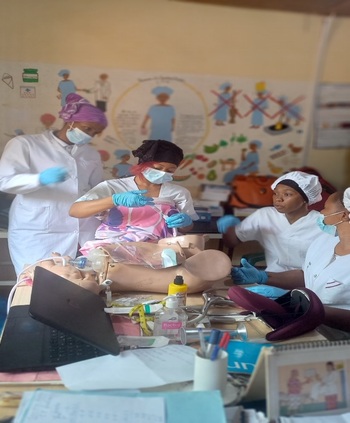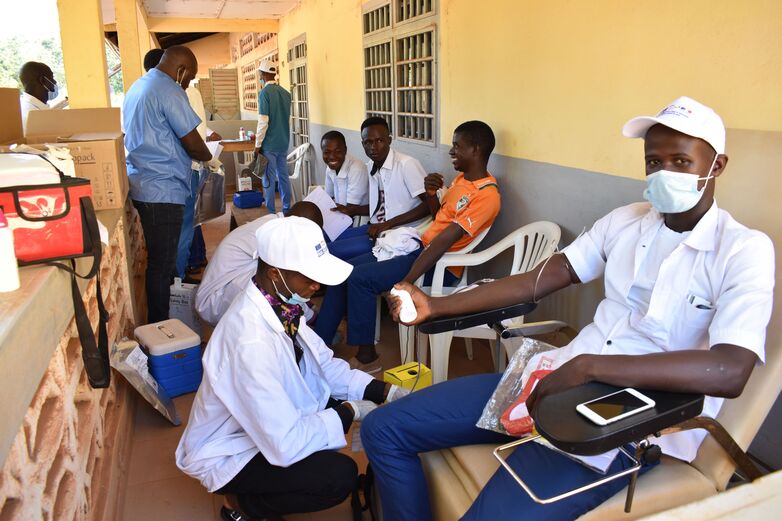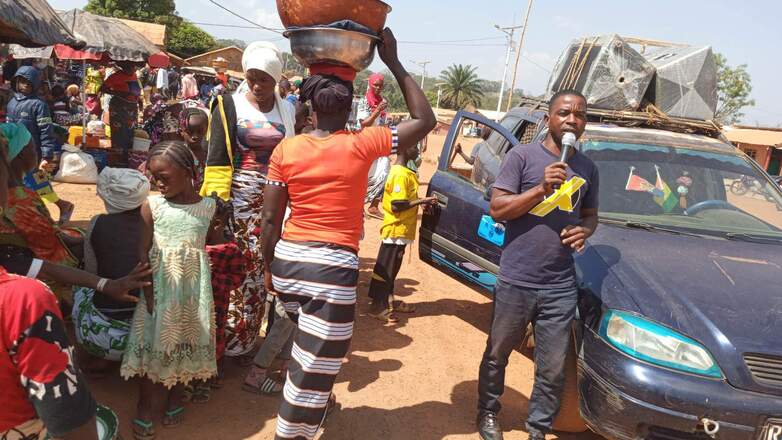Promoting reproductive and family health in Guinea
TC module: Reproductive and family health in Guinea
-
Commissioning Party
German Federal Ministry for Economic Cooperation and Development (BMZ)
-
Cofinancier
European Union (EU)
-
Country
-
Lead executing agency
More
-
Overall term
2015 to 2023
-
Products and expertise
Social development

Context
Years of political and economic instability followed by the Ebola epidemic of 2014 to 2016 have left the health system in Guinea in a weakened state. Women’s and girl’s health in particular is affected by socio-cultural factors such as early marriage and female genital mutilation. In rural areas, barely one third of births are attended by qualified personnel. Due to their poor quality, the rural population makes too little use of the health services provided, especially for reproductive health.
Objective
The population increasingly uses needs-based health services, especially in the area of sexual and reproductive health.

Approach
The project promotes reproductive health in the Labé, Mamou, Faranah and Kindia regions. Since August 2019, N’Zérékoré and the Kérouané and Kissidougou districts have been added thanks to cofinancing from the European Union. The project works closely with the Ministry of Health in Guinea, both at local and national level. Particular attention is paid to gender equality and the inclusion of people with disabilities. In this context, the programme operates in five fields of action:
- It strengthens the Ministry of Health’s performance in the areas of personnel administration, knowledge management, sector coordination and digitalisation of the national health information system.
- It aims to strengthen the district health administrations and implement optimised monitoring of the health indicators with scientific support.
- The quality of health services is improved by training health care staff and providing consumables such as medical equipment and hygiene kits.
- Furthermore, the project improves community health and increases the demand for universal access to high-quality health services. It does this with the help of the “Join-In Circuit”, media campaigns and interactive radio shows.
- Ending female genital mutilation is to be promoted across all areas through dialogue forums and action research.

Last updated: August 2023






